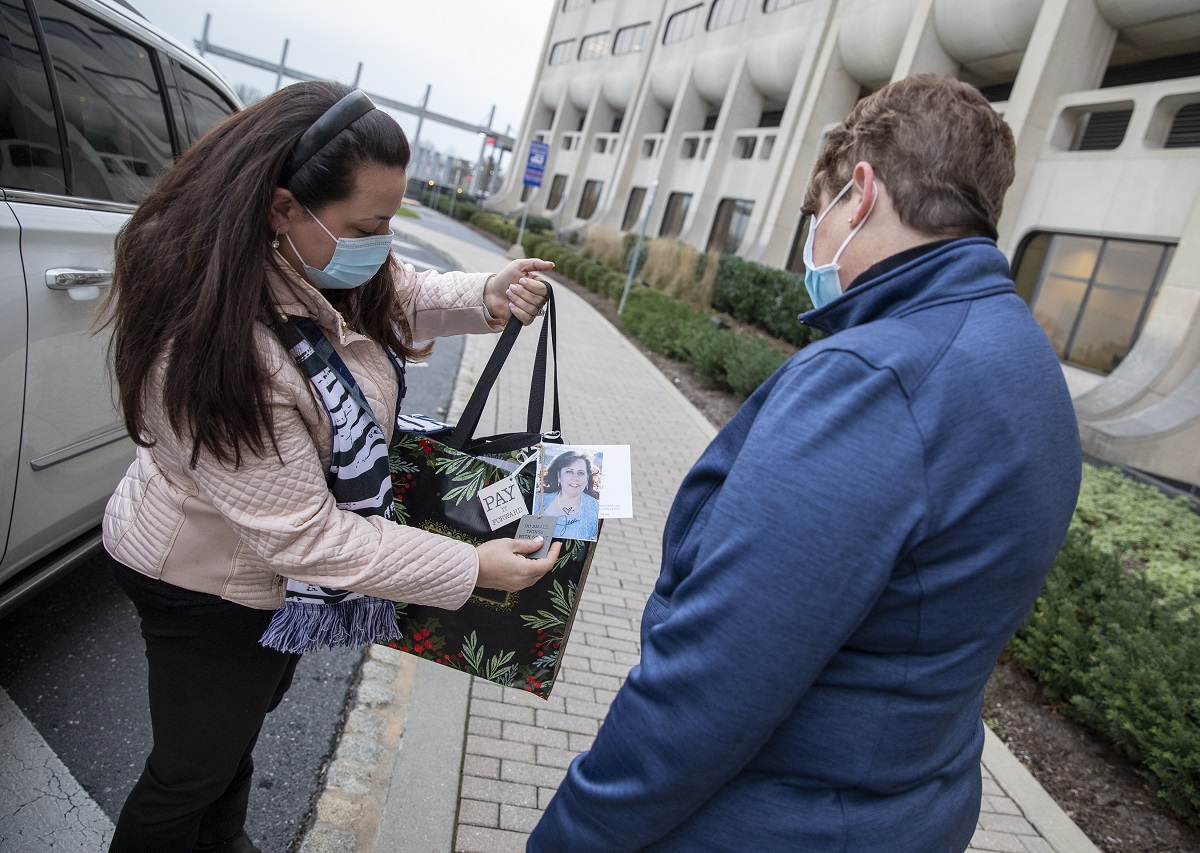
Leer en español
November 3, 2021
The Centers for Disease Control and Prevention on Nov. 2 gave emergency authorization for use of the Pfizer BioNTech vaccine on children as young as 5 years old. The move is sure to spark fresh concerns among parents.
While proven effective against the virus that causes COVID-19, the vaccine is controversial in some circles. Tune into any news program or visit any school board meeting these days and you’ll find debate over its use and safety―particularly when it comes to children.
Some conjecture has it that the virus is virtually powerless against youth. COVID-19 is a disease of the elderly, some say, so why bother subjecting children to a treatment that’s still in its infancy?
What about side effects? What about children who fear needles? Why is this happening now?
Dr. Patrick Gavigan, a pediatric infectious disease physician at Penn State Health Children’s Hospital, says this newest segment – 5 to 11 year olds – need the vaccine as much as any other age group. Young children are contracting COVID. While the numbers are smaller, COVID units are admitting kids and babies. Many will become seriously ill. Some will die. More won’t develop severe symptoms, but risk spreading COVID to someone who might not be as lucky.
Below, Gavigan answers a few questions about the new authorization:
Why is it important that my child be vaccinated? I thought COVID-19 only affected older people.
“We know that while they don’t get seriously ill as frequently as older adults, children – even young children – can get sick to the point the point where they’re hospitalized,” Gavigan said. “We’re seeing kids of all ages―as young as a couple days or a couple weeks of age to as old as 18 years of age―hospitalized with COVID-19 and complications of COVID-19.”
Complications like Multisystem Inflammatory Syndrome – Children (MIS-C). Children start out with mild COVID-19 symptoms. Then organs, including the heart, lungs, kidneys, skin, eyes, gastrointestinal organs and brain, become inflamed. MIS-C is serious, potentially fatal and has afflicted thousands of children worldwide.
“These are generally otherwise healthy kids without underlying medical issues,” Gavigan said.
COVID’s effects on children can be far reaching. But even children who don’t become seriously ill can pass it to other family members and friends.
Why did the CDC wait to approve this? Why not approve it for everyone all at once?
Authorizations are given in steps, and 5 to 11 year olds were the latest study group, Gavigan said. The most recent rounds of testing of the Pfizer vaccine determined it was safe for children in that age group.
Trials for younger age groups will determine its safety for use on children as young as six months old, Gavigan said.
The authorized dosage for this age group is smaller than what’s administered to adults, he said. Ten micrograms will be used to inoculate 5 to 11 year olds; 30 micrograms are given to adults.
The resulting immune response will be the same, he said―similar antibody levels and reported effectiveness of greater than 90%.
Are there any side effects that might sicken my child?
“From what we’ve heard, the side effects tend to be mild and similar to other groups. No serious side effects were reported in the trial,” Gavigan said. Possibilities include pain at injection site, fevers, and headaches.
What’s the best way to treat the possible side effects? When should I call a doctor about them?
Over-the-counter medicines, such as Tylenol to relieve pain, can treat nearly all of the mild side effects.
Call a doctor “for any side effect you’re concerned about,” Gavigan said. High-grade fevers that last too long, breathing trouble and chest pains could indicate something serious.
Don’t hesitate to call “if they are not acting like themselves,” Gavigan said
How do you suggest I talk with my child about this?
Level with them. “Five to 11 years old is a wide range, so you have to tailor what you’re going to say to how mature they are and what they can understand,” Gavigan said.
But it’s important to emphasize why they’re getting vaccinated. It’s going to keep them safe. Not only that, “it’s going to keep people around them―like grandma and grandpa―healthy as well,” Gavigan said.
Related content:
- The Medical Minute: COVID-19 vaccine protects kids 12 and up, their communities
- Children are not immune: Penn State Health pediatrics work overtime to mitigate COVID’s effects
The Medical Minute is a weekly health news feature produced by Penn State Health. Articles feature the expertise of faculty, physicians and staff, and are designed to offer timely, relevant health information of interest to a broad audience.

